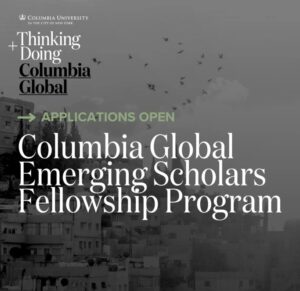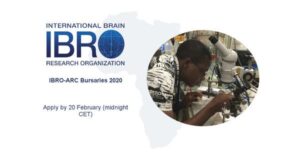Russell E. Train Fellowships support individuals pursuing a master’s or doctoral degree in conservation. Each year, WWF supports committed conservationists from target countries to receive financial support for their studies and field research. Applicants can apply to attend any university around the world and must return to their home countries to work in conservation for at least two years after completing their degree.
The aim of the fellowship is to support individuals to develop evidence-based, innovative and interdisciplinary research on the role gender equity plays in achieving sustainable Blue Economy outcomes, with emphasis on small-scale fisheries and tropical ecosystems.
Eligible countries: Belize, Ecuador, Fiji, Gabon, Guatemala, Guyana, Honduras, Kenya, Madagascar, Mozambique, Namibia, Papua New Guinea, Peru, Solomon Islands, Suriname, and Vietnam
Current & Aspiring University Faculty for Conservation – OPENEFN is providing fellowships to support current and aspiring university faculty that are affiliated with or currently employed at African, Asian and Latin American universities to pursue doctoral degrees in conservation-related fields. After completing a degree, the individual must enhance, expand, or establish a graduate-level conservation program at a university in their home country.
ELIGIBILITY CRITERIA
To be eligible for a Train Fellowship, you must meet the following criteria. Please note that eligibility criteria can vary by competition. Please also refer to specific competition guidelines to ensure you are eligible.
- You must be a citizen and legal permanent resident of an eligible country.
- You must have at least two years of conservation-related work or research experience.
- You must have a demonstrated commitment to working in conservation in an eligible country.
- Your research or academic program must address one of the focus areas listed in the guidelines.
- You must be enrolled in, admitted to, or have applied to a master’s or PhD program anywhere in the world.
- You must plan to begin your studies no later than January 2023.
- You must commit to working for at least two years in your home country after the completion of your degree.
- You must not have received a Train Fellowship or Scholarship in the past. Professional Development Grant recipients are eligible to apply.
- You must notify EFN if you are a WWF employee, consultant, or previous EFN grant recipient.
- You must submit all required documents by the application deadline (March 1, 2022).
SELECTION PROCESS
Train Fellows are selected through a competitive, merit-based process. An independent, interdisciplinary panel of experts is convened in each country to review applications and to identify the top candidates based on the following criteria:
- Professional qualifications as evidenced by previous and current conservation-related positions, references from colleagues in the field, publications, and other sources
- Demonstrated leadership through involvement in community and volunteer activities, the workplace, local and national government, and other areas
- Prior academic achievement as shown by grades, academic awards, and references from professors
- Motivation and commitment to contribute to conservation in a participating country and to share what is learned with others in their field and in their home communities
- Potential impact of proposed study/research on conservation efforts in the home country or region
- Relevance of the proposal to the topic
- Evidence of enrollment or ongoing enrollment in an institute of higher learning
For more information on Train Fellowships, please e-mail us at efn@wwfus.org.
Application Deadline: March 1st 2022
For More Information:

